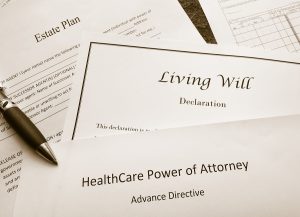What Happens if You Die Without a Will?
May 5, 2020

None of us want to think about our own death. Many younger adults avoid the topic entirely, feeling it too morbid for discussion. However, life is nothing if not uncertain, and most of us have witnessed how quickly things can change. If you die without a will, it is important to understand what will happen.
Understanding Probate
Probate is the court process of locating and determining the value of a person’s assets, paying their final bills and taxes, and distributing the remainder to their beneficiaries. If there is a will, probate will authenticate the will and use it as a guide for the process. If there is no will, probate is still required to pay the final bills and distribute the estate. With no will, the court will appoint the next of kin – usually a surviving spouse, or an adult child, although it can be any living relative.
Locating Assets
With or without a will, the court will locate and take possession of all the deceased assets so they can be protected during the probate process. This can involve a long time and often, some digging. They will review insurance policies, tax returns, bank statements, and other financial paperwork. If real estate is included, property taxes and mortgage payments must be paid in the interim.
Notifying Creditors
As with assets, with or without a will, all creditors must be identified and notified of the death so they can make claims for any money owed. Creditors are paid from the assets, including final bills incurred around the time of death (such as hospital bills).
So What Happens if You Die Without a Will?
With or without a will, your estate, no matter how large or small, will go through probate court. Probate is long, expensive, and determined by the court. Without a will, the judge in charge of your estate will have no knowledge of your wishes, and no matter what you may have said to anyone during your life, none of that will hold any legal weight in probate. This will make the process hard and stressful on those you leave behind. If you have children, the court will decide who will take guardianship of them. The court will also determine who will inherit what is left of your assets, which will be whittled away by the cost of the legal fees. In short, you will not have the chance to make your final wishes heard.
Creating a will can feel morbid and scary, but it is often scarier to think of what would happen to your assets and loved ones if you were to die without one. It’s important to talk with an estate planning attorney about what steps you can take to document your final wishes to make things easier on your family down the road. I know you have a lot of questions, let’s talk about your plans today.
